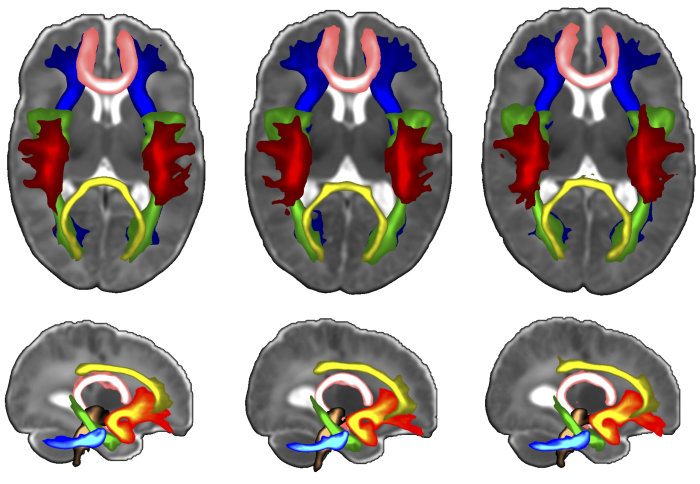Baby brain scan library could help push forward research
by Ryan O'Hare

Hundreds of MRI scans of babies’ brains have been made available online to scientists to study how the brain develops.
The batch of more than 500 images is the first large-scale data release from the Developing Human Connectome Project (dHCP) – a collaboration between King’s College London, Imperial College London and the University of Oxford – and could be used by scientists to advance research.
The project aims to uncover how the wiring and function of a baby’s brain develops during pregnancy and after birth, and a pilot release of scans from 40 infants has already been accessed by researchers hundreds of times.
The team is sharing their images and methods online so that other scientists from around the world can use the data in their own research.

Professor Daniel Rueckert, the Imperial lead on the project, said: “The data we are gaining from these scans is already helping to provide us with unprecedented insight into the neurological changes in the human brain as it develops.
“We hope that making these data available to researchers around the world will speed up research into a range of neurological conditions, which could ultimately lead to better detection and treatment at an early age.”

The images in the data release are from babies born and imaged between 24-45 weeks of pregnancy at the Evelina Newborn Imaging Centre, based at St Thomas’ Hospital, London.
Most babies were imaged while they were sleeping, with the team adjusting to correct any changes in images due to the babies moving.
The project is a major advance in understanding human brain development. It provides the most detailed map of how the brain’s connections develop to date, and how this goes wrong in disease. Professor David Edwards King’s College London
Scientists hope the information will enable teams around the world to better understand how conditions such as autism develop, as well as how problems in pregnancy can affect the brain’s development.
Lead Principal Investigator, Professor David Edwards from King’s College London said: “The Developing Human Connectome Project is a major advance in understanding human brain development- it provides the most detailed map of how the brain’s connections develop to date, and how this goes wrong in disease.”
The research is funded by a €15 million Synergy grant from the European Research Council.
Future releases will include data from babies still in the womb as well as information on children’s genes and their abilities as they grow up.
Researchers are able to access and download the images from the dHCP website.
-
This article is based on materials provided by King’s College London.
Article supporters
Article text (excluding photos or graphics) © Imperial College London.
Photos and graphics subject to third party copyright used with permission or © Imperial College London.
Reporter
Ryan O'Hare
Communications Division